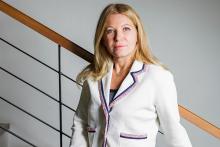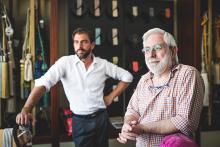At illycaffe quality and sustainability are inextricably linked
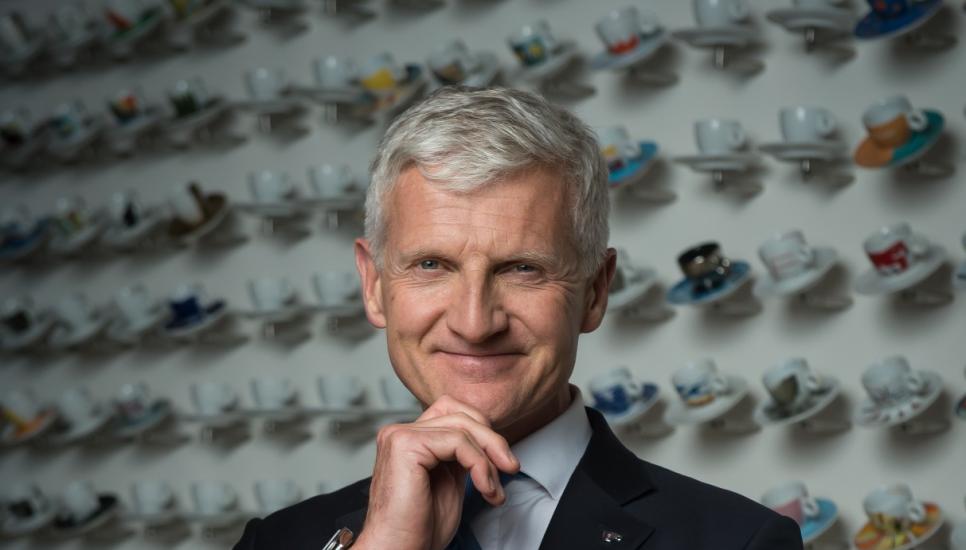
Dr Andrea Illy is the chairman of illycaffe SpA, a family-owned business and the first B Corporation coffee company in Italy. Illy, who is a trained chemist, environmental expert and innovator, has made illycaffe synonymous with sustainability and quality.
illycaffe was founded by Illy’s grandfather in 1933 in the city of Trieste. Over the years, illycaffe has won numerous awards for its ethical business standards. Most notably it has been recognised by Ethisphere as one of the World’s Most Ethical Companies for nine consecutive years. Closer to home, illycaffe also won CampdenFB’s Top Sustainable Family Business Award in 2015.
Illy outlines how, from its inception, illycaffe has been a value driven company.
“When my grandfather, Francesco Illy [pictured], formed the company his dream was to offer the greatest coffee to the world. Offering is something that involves generosity, inclusiveness and, most importantly, virtue. His dream was to provide the highest quality coffee and develop an excellent business model.”
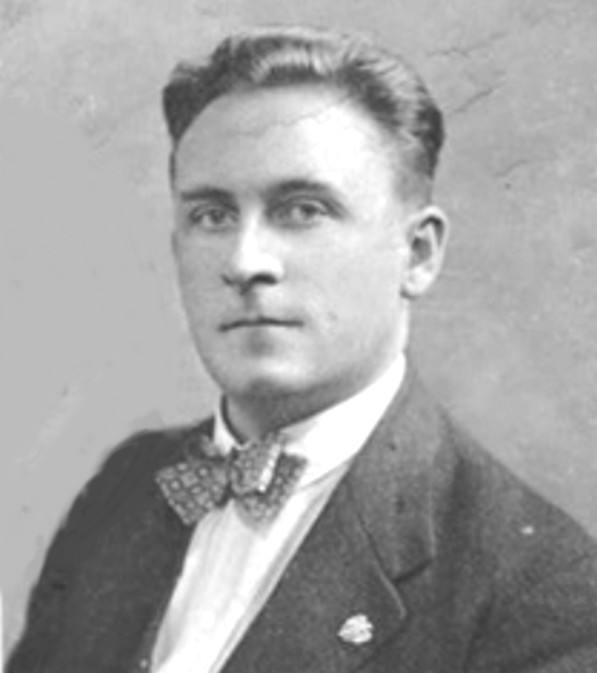 Along with its ethical approach to business, illycaffe is also known for its innovations with regards to coffee growing and production. This is part of the longer legacy of the company.
Along with its ethical approach to business, illycaffe is also known for its innovations with regards to coffee growing and production. This is part of the longer legacy of the company.
Illy’s father, Ernesto Illy, started a research laboratory that made illycaffe a leader in coffee innovation and technology. Illy has taken inspiration from both the values of his grandfather and the innovations brought about by his father to develop illycaffe’s current business approach. Recently the company has been certified as a B Corp. This is a significant achievement for the company.
B Corp certification involves a lengthy process of scrutiny in which the company is evaluated across its governance, environmental and social impacts. It also means that in its charter, the company must include benefits to a wider range of stakeholders that extends beyond generating profit for its shareholders. B Corporations are regarded as front runners in creating new ethical forms of business models and strategies.
For illycaffe this certification was a natural culmination of its longer value driven approach.
Illy regards an ethical business model as a way of creating long-term value.
“The most important indicator [for the success of a company] is not profit, it’s value. Profit is the past, companies must be forward thinking. It is possible to be extremely profitable today but create very little value in the future. This is because profit is something that can be maximised through unethical means, such as reducing quality requirements, squeezing suppliers or underpaying workers. This would reduce the cost, and the company could maintain the price by cheating the consumer. This is a way to maximise profit but at the detriment of stakeholders. This is not an approach I want to take because, sooner or later, there is a price to pay for this short-term profit maximisation.”
 The illy business model is based on pursuing the ‘triple bottom line’ which focuses on achieving economic, social and environmental sustainability for all its stakeholders.
The illy business model is based on pursuing the ‘triple bottom line’ which focuses on achieving economic, social and environmental sustainability for all its stakeholders.
“For our stakeholders, we pursue the triple bottom line. This includes economic sustainability through the principle of shared value. We see profit as a means, not an end, and it is equally shared amongst all the stakeholders to build long-term relationships and value over time. We also pursue social sustainability through the principle of personal development, which is basically knowledge transmission. For this, we created the University of Coffee. Moreover, we also prioritise environmental sustainability, which means no pollution or waste. We achieve this through using recyclable materials.”
At illy, pursuing sustainability is a priority at every stage of the production process. This includes a certification protocol for coffee procurement named Sustainable Procurement Process. This certification allows illycaffe to monitor coffee supply chains to ensure the quality of their product, as well as environmental and worker safety standards across the supply chain. Illy explains how this is achieved in the company.
“Buying directly allows us to transfer the margin directly to the grower, with no intermediaries. It also provides traceability; we can record what we pay every single grower. We also know all the relevant information about how this grower works in terms of social and environmental standards. Furthermore, we have traceability for every single bean that we buy.”
A key priority for the company is the wellbeing and training of the coffee grower community.
“Our intention is for our growers to do the best in their lives and to be challenged to produce the best possible sustainable quality. We challenge our growers with awards. We have a global award, which is called the Ernesto Illy International Coffee Award. This is an annual award which is given to the best growers of each origin part of our blend every year.
Once they are engaged, the first step is knowledge transfer. We help them understand how to elevate quality and sustainability standards. This is done through the University of Coffee, which was created to transfer knowledge to stakeholders, up and down the value chain. If the grower practice this knowledge and they are successful in producing coffee which corresponds to our quality standard, we buy the coffee directly from them. We pay a premium price which is 30% on top of the market average. So, it’s highly profitable to sell coffee to Illy.”
The high quality of illy’s coffee allows for it to charge a premium price for its products.
Consumers are also willing to pay a premium to support illy’s ethical and sustainable business approach.
“Consumers are willing a pay for the value they get; this also includes the cost of sustainability. In our case, if we offer the best quality in the market, of course we charge more for it. But to get the best quality to the market we must pay more to our growers, otherwise they wouldn’t produce the coffee to the standard we require. So, the consumer understands this and is ready to pay the premium price because they know they are getting higher quality.”
 Achieving carbon neutrality by 2033 In 2020, illycaffe launched ambitious plans to make illycaffe carbon neutral by 2033. This date aligns with the centenary celebrations for the company. So far, the family business has switched to purely renewable energy and reduced its CO2 emissions by more than 3,000 tonnes since 2012.
Achieving carbon neutrality by 2033 In 2020, illycaffe launched ambitious plans to make illycaffe carbon neutral by 2033. This date aligns with the centenary celebrations for the company. So far, the family business has switched to purely renewable energy and reduced its CO2 emissions by more than 3,000 tonnes since 2012.
The company intends to continue to eliminate 175 tons of plastic per year and has launched a range of sustainable recyclable takeaway cups.
“We are still a society which is extractive, we keep extracting resources from the environment and our planet, and we don’t renew them,” Illy said.

“This is simply impossible to maintain because we are passing most of the important planetary boundaries. We need to transition to a regenerative society. This would mean consuming only resources which can be either recycled or regenerated. Consuming what can be regenerated is the only way to be sustainable.”
Moving beyond net-zero emissions
Illy also has ambitions beyond meeting the net-zero commitment by 2033. He supports regenerative initiatives that are aimed at restoring environmental damage and rebuilding ecosystems.
“Energy transition to net-zero is a prerequisite. Once zero emissions have been achieved there is still the task of cleaning past emissions and restoring the ecosystems which have been depleted.”
Illy calls this regenerative approach ‘virtuous agriculture’. It involves farming methods that combine sustainable farming with a focus on regenerating the environment by enriching soil with organic carbon. For Illy, these farming techniques have a dual benefit, they protect the environment and enrich the quality of coffee.
“Regenerative agriculture is good for the environment because it stops emissions and recreates biodiversity. It is based on enriching the soil with organic carbon. This has a double benefit as sequestrated carbon is extracted from the air and put into the soil. The benefit of enriching the soil with carbon is that it nourishes the soil’s micro-biotics and biodiversity. This influences the fertility, resilience, hydration, and even structural resistance to the erosion of soils.
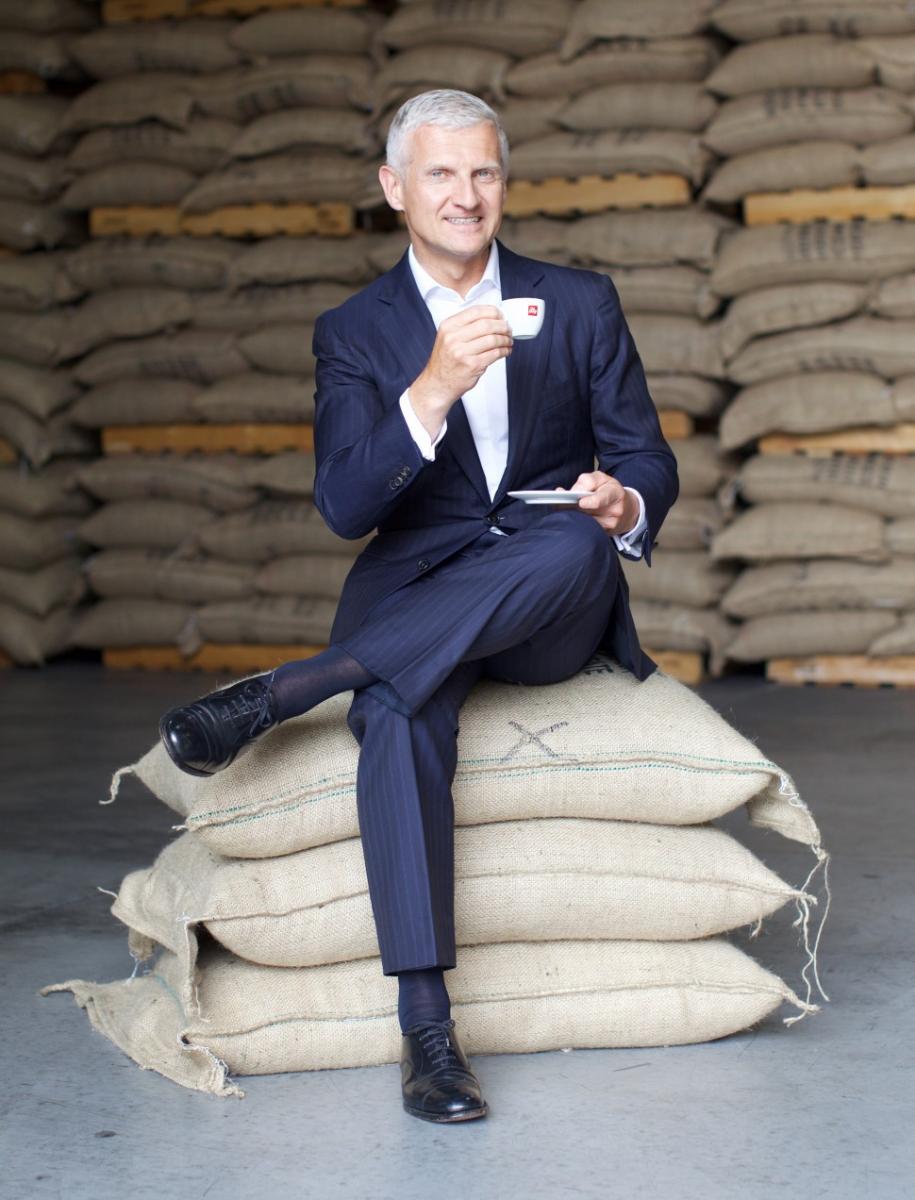 “It creates a domino effect and makes production more sustainable. The product is also healthier, as it does not contain contaminants, such as oxidants or carcinogens and is enriched due to having antioxidants and anti-inflammatory substances.”
“It creates a domino effect and makes production more sustainable. The product is also healthier, as it does not contain contaminants, such as oxidants or carcinogens and is enriched due to having antioxidants and anti-inflammatory substances.”
The Regenerative Society Foundation: Developing a regenerative economy
Illy, along with Jeffrey Sachs, the president of the UN Sustainable Developments Solution Network, also co-chairs the ‘Regenerative Society Foundation22’. This is a non-profit organisation formed to promote the transformation of society towards a regenerative socio-economic model. The foundation is a multilateral partnership of global leaders, with a diverse set of expertise. Being part of this initiative allows Illy to promote regenerative agricultural techniques amongst a broader community of farmers.
“We are working with farmers that are already active with regenerative projects. We want to scale up these regenerative projects by creating knowledge transfer initiatives so others will learn these techniques. We are also linking these initiatives with investors who will invest in scaling up these projects.”
Illy firmly believes 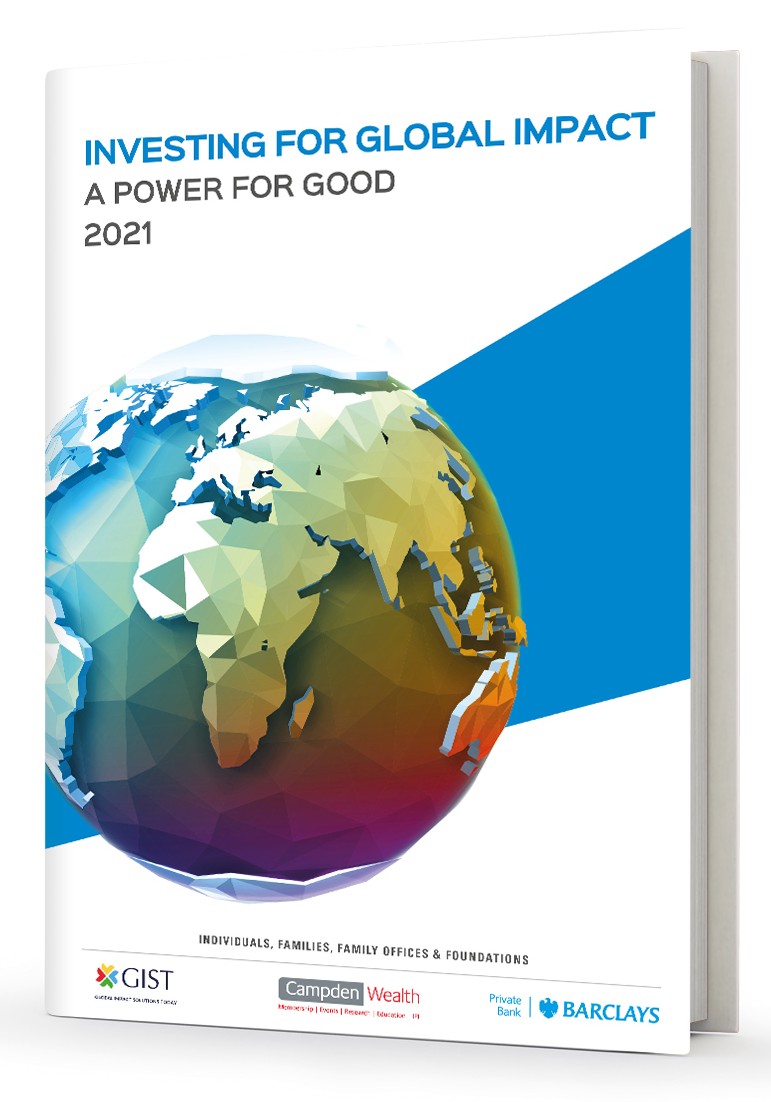 changes to agricultural production will only be sustainable if the initiatives are successful in generating sustainable revenue flows. There is a strong emphasis on financial sustainability in all his endeavours.
changes to agricultural production will only be sustainable if the initiatives are successful in generating sustainable revenue flows. There is a strong emphasis on financial sustainability in all his endeavours.
“Our main goal is to promote a regenerative economy. If you don’t generate a cashflow, which allows the initiatives to be self-financed and scaled, it is a wasted opportunity. Our pledge is to create a regenerative economy for the planet and people.”
For Dr Andrea Illy, the imperative to bring about social and environmental change rests with private businesses. He is certainly charting a bold path in this regard.
“Corporations all around the world have the capacity to act together to change the course of things. The enormous effort required for energy transition to a carbon net-zero society cannot happen without the proactive effort of corporations. The private sector has the responsibility to transform society. If we don’t take this responsibility, then we compromise the livelihood of our own company.”
Discover more insights in the new Investing for Global Impact: A Power for Good 2021 report by Campden Wealth with GIST Global Impact Solutions Today and Barclays Private Bank.



